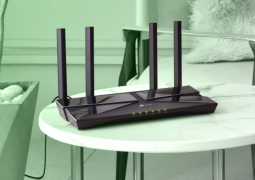Tips for Starting a Rental Property Business
by 19/06/2019 08:590

A common bit of financial wisdom is “don’t put all your eggs in one basket”.
This is especially true for retirement funds. Even if you have a 401k or expect Social Security payments in your golden years, many investors find rental property to be another valuable source of either monthly or lump sum retirement income.
The sooner you can buy rental property, the more that property appreciation will work its magic for you later in life, so here are some tips for starting out with your first rental property.
Separate financial transactions
In most cases, you are required to keep a tenant’s security deposit in a separate escrow account. For accounting purposes, it’s easiest and most transparent for you to keep all property expenses and income in a separate account from your personal account.
Though you should always seek professional tax and legal counsel on corporate matters, creating a corporation or limited liability company may help protect your investment in the event of a lawsuit. Opening a corporate bank account to handle all financial transactions can put the administrative foundation in place for you to add more properties in the future.
Administrative excellence breeds success
Having an organized, thorough process can proactively prevent problems through consistency and being adequately prepared for most outcomes. Ensure your lease paperwork has been reviewed or provided by informed legal experts, and that it’s as comprehensive as possible to protect you from unforeseen issues.
Stay abreast of Landlord and Tenant Act changes, document all interactions during the rental application process, and always perform the same steps with each prospective tenant to avoid discrimination suits. Make sure you are familiar with the Equal Housing Opportunity Act before writing any ads or marketing materials.
Keeping your equipment in good working order is part of administrative excellence. A broken printer can cause a hassle when you need to get your tenant to sign paperwork. Even things like a cracked cell phone screen can cause you to make misleading typos when filling out forms or notifying residents of upcoming issues.
Keep spare toner on hand, keep all of your administrative equipment in good working order, and if you need to get an iPhone 6 screen repair, don’t put it off until the last minute. It’s for business, after all.
Property maintenance is a cornerstone
Decide whether you will perform any needed repairs or if you will hire a professional, and thoroughly vet anyone you plan to send to your property. This individual will be entering your tenant’s private space, so they should be insured, bonded, and free of criminal records.
Maintaining a high level of tenant satisfaction increases the likelihood that tenants will pay rent on time and stay in your property longer. Lack of responsiveness on repairs is one of the most common tenant complaints, so figure out a system that ensures the highest level of responsiveness to emergency repair calls to keep your tenants safe and satisfied.
Some landlords try to make preventative maintenance (such as changing HVAC filters and replacing batteries) the tenant’s responsibility. This may make sense in theory, but you are essentially leaving their safety and the operation of a very expensive HVAC system to chance.
It’s often best to schedule maintenance to happen at least annually (or more, since filters often need to be replaced every three months), provide a minimum 24-hour notice, and use your time visiting the property to ascertain if any other repairs need to be made.
Since this is a long-term investment, set aside funds on a monthly basis for major repairs like roof and HVAC system replacements, exterior painting, and new appliances. Expect things to fail and plan for that eventuality rather than being caught by surprise with no budget for repairs.
Once you become comfortable with your first property rental, use it as a springboard on your journey to financial independence.



